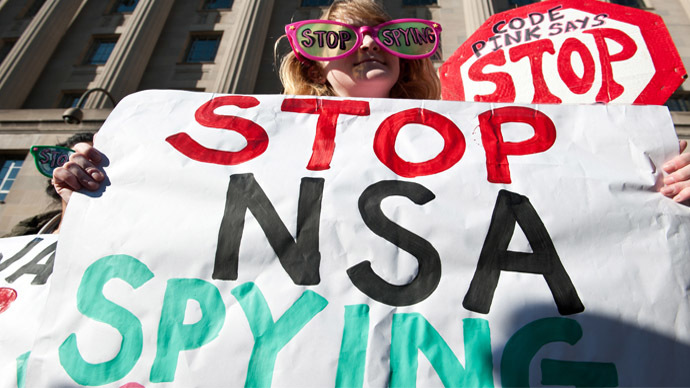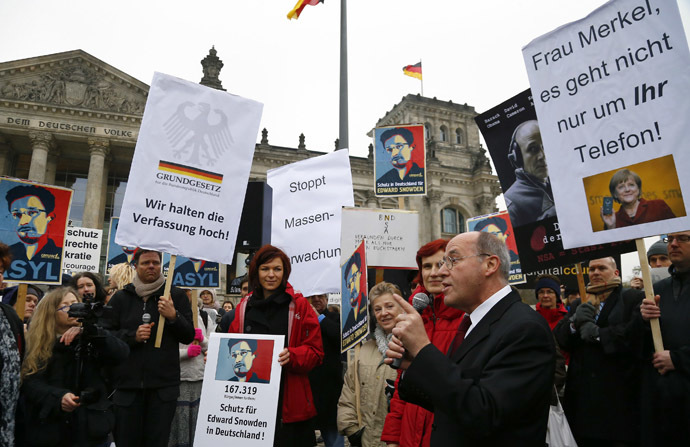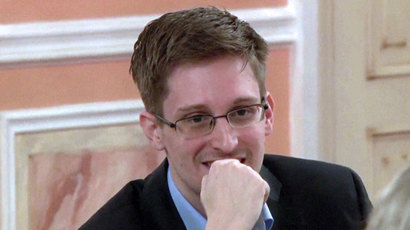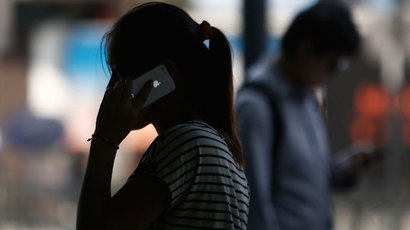NSA sets global trend for invasive state snooping – HRW

The United States’ dragnet surveillance programs have set a dangerous precedent, encouraging other states to bolster their own snooping capabilities and engage in censorship under the guise of security, Human Rights Watch warned in its annual report.
“The importance of privacy, a right we often take for granted, was thrown into sharp relief in 2013 by the steady stream of revelations from United States government files released by former National Security Agency (NSA) contractor Edward Snowden,” the New York-based group wrote in its 24th annual review of human rights practices around the globe.
“These revelations, supported by highly classified documents, showed the US, the UK, and other governments engaged in global indiscriminate data interception, largely unchecked by any meaningful legal constraint or oversight, without regard for the rights of millions of people who were not suspected of wrongdoing,” the report said.
The report warns that the ease with which information is disseminated in the digital age has been matched by a commensurate growth in unchecked surveillance capabilities.
“The US now leads in ability for global data capture, but other nations and actors are likely to catch up, and some already insist that more data be kept within their reach. In the end, there will be no safe haven if privacy is seen as a strictly domestic issue, subject to many carve-outs and lax or non-existent oversight,” the group warns.
Under the section entitled ‘Legal Loopholes for Surveillance’, HWR notes that “as the birthplace of the internet, home to major related industries, and with most global online communications running through its territory or facilities, the US is uniquely placed to conduct global surveillance.”
Although fixing excesses spurred by widespread snooping response, “the US bears a particular burden, as a leader in both cyber-technology and mass surveillance, to rein in the serious overreach Edward Snowden brought to light.”
HRW head, Kenneth Roth, told AFP the US is, for better or worse, “a trendsetter with respect to internet privacy and internet freedom."
"One reaction to the NSA snooping is that many countries are going to create in essence national interests, they're going to force internet companies to keep user data in their country.
That is going to make it much easier for them to figure out who is saying what on the internet and to penalize them by censoring... critical speech," he said.

The 667-page document, which covered 90 countries and territories worldwide, was presented in Berlin on Tuesday.
Roth said HRW had chosen Berlin to present its annual report because Germany was an epicenter of global outrage following Snowden’s revelations, which included the monitoring of Chancellor Angela Merkel's mobile phone.
The paper also praised Germany which, for over three decades, has recognized “informational self-determination” as a fundamental democratic right. While the United States has, in the words of Supreme Court Justice Sonia Sotomayor, “grown to equate ‘privacy’ of communications with secrecy,’ Germany recognizes a constitutional right of ‘personality’, “or the protection of one’s integrity and capacity for self-development.”
In response to mounting domestic and international pressure, on Friday US President Barack Obama banned eavesdropping on the leaders of allied states, and stated that intelligence agencies will no longer directly hold the phone data culled from millions of Americans, among other changes.
Roth, however, told Reuters from Berlin that Obama had given little more than" vague assurance" on the monitoring of communications.
"In none of this has there been recognition that non-Americans outside the United States have a right to the privacy of their communications, that everybody has a right to the privacy of their metadata and that everybody has a right not to have their electronic communications scooped up into a government computer," he said.
Roth said the US approach was akin to putting a video camera in everyone’s bedroom, while claiming it would not violate anyone’s privacy rights.
"Imagine that the government puts a video camera in your bedroom and says, 'Don't worry, this is just going into a government computer. We won't look at it unless we have a really good reason'," he said.
"Would you be reassured by that? Of course not. But that is exactly what the US government is proposing with respect to our private communications."














